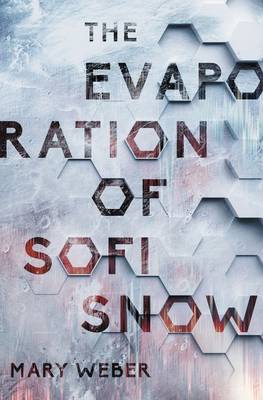Reviewed by sa090 on
───────────────────
For me personally the game wasn't hard to understand and visualize, it sounded like a mix of World Trigger, the film Gamer and a little bit of Ready Player One so after a couple of chapters or so I was totally on board with the idea and actually looking forward to more of it. Sadly the book moves away from that interesting aspect and focuses on something different while retaining some bits and pieces of what made FanFight an interesting event. The thing that was slightly meh about it, was the lack of a real reason for this game. They provide more than one reason for sure but since all of them can seemingly coexist with each other without changing my impression of any of them make me want a little more specification.
Now the second part of the book or rather what we moved to was interesting in its own right as well. It wasn't that difficult to figure out why this is a thing for me but as usual not-so-original ideas =/= boring ideas so I was fine with it. I really enjoyed learning about Delon, the Delonese, thinking about their possible agenda, seeing their habits and learning of their influence. This part also had an aspect I really enjoyed in the book; Sofi's devotion to save her brother. Bonds like these mean a lot to me and the way Mary Weber portrayed it was enjoyable to read about, especially with the added "thing" that seemingly promises many interesting stuff. These two things are the pros of the book for me, the cons unfortunately outweighs them.
The main main issue I had with the book was the dialogue, the way Mary Weber wrote this with the new words and the exchanging of some terms made the book hard to get through and the more I read sometimes the less interested I got. However, I can learn to ignore this, what I couldn't ignore is the usage of Spanish in a lot of chapters. Some words are very similar to English so it would've been fine if it was just that but since I don't know a lick of concrete Spanish (English was the only foreign language taught at school) some words had me looking up a translation because I didn't want to risk losing the context of their thoughts and the frequency was annoying. If I take Flame in the Mist as a parallel because of the Japanese terms used in it then that right there is the difference, in Flame of the Mist the foreign words are there because it IS what the things are called in Japan (you won't find Mariko calling her mother Haha/Okasan for example) with an added glossary to help if needed. Here, it's just unnecessary.
The characters are next, I found it really hard to actually care about any of them. Sofi's jumbled emotions and what that implied to me about her self worth (this is just me since I can be very prideful with stuff like this) kills every ounce of respect I build for her when we're following her journey to find her brother, her "partner for 3 years" was way too obvious thanks to the replies after the bomb, Miguel is one of those characters where the author tried way too hard to convince me that he's cool/bad boy/irresistible that he just comes out as really lame and also sadly laughable of an attempt when the hair is mentioned (he does an amazing thing, I won't deny that but it doesn't change much of my impression of him so late in the book). The other characters in the book went from unnecessary (like the book wouldn't have changed at all if they weren't there, C for example) and names on a page.
The world building was another lacking aspect of the book, was it there in any way? Yes, it's there enough to give a very general idea of the world but it wasn't nearly enough. This world is huge, very advanced, with new whole systems and a whole new race so I really wanted to know a lot more about it than some very passing explanations. Why children are made into ambassadors for seemingly no real reason? is one of my bigger questions.
This really sucks because the premise is really interesting and the events in the book, despite not going how I hoped it would, shows a lot of things that ended up interesting me either way but these small and seemingly irrelevant things had me stuck in the "I want to read and I don't want to read" area for a long time. Would I read the sequel? Most likely since it's a duology so it's not that long of a commitment and based on the title it's most likely dealing with the things I liked in the book so yeah... 🙃
Final rating: 2/5
Reading updates
- Started reading
- 22 August, 2017: Finished reading
- 22 August, 2017: Reviewed
